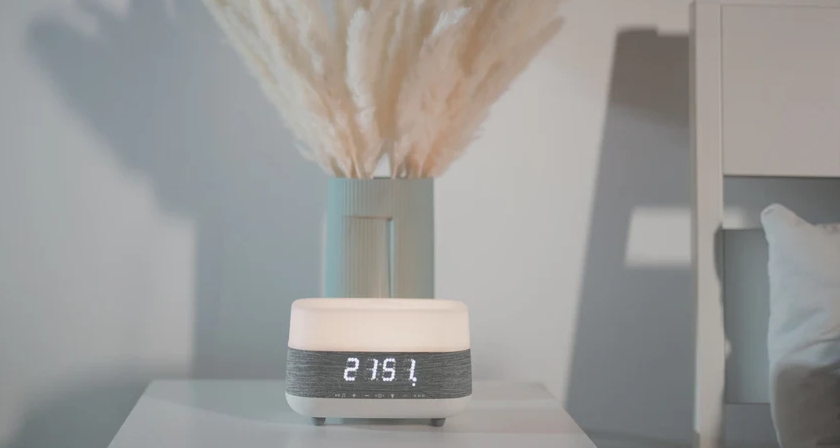
When thinking about sleep and its relationship to the senses, few people immediately think of smell. Sight, sound, and touch typically receive more attention because of the obvious ways that light, noise, and comfort can impact sleep. While it might not be as immediately apparent, smell can directly affect sleep.
The connections between smell and sleep are subject to continuing research. Learning more about what has been discovered so far provides opportunities to make the bedroom environment more conducive to quality sleep.
Because of the power of the sense of smell, certain fragrances may contribute to better sleep. Some scents promote relaxation that makes it easier to fall asleep and feel well rested the next day.
Not surprisingly, some scents are commonly associated with a more inviting bedroom environment. The smell of fresh sheets, for example, may make people look forward to going to bed. There are indications that bringing other scents into the bedroom with aromatherapy may promote better sleep.
There is no consensus about the best types of aromatherapy for sleep. What works best for any individual may depend on the nature of their sleeping problems and their fragrance preferences.
Essential oils have shown benefits for sleep in research studies. However, it is important to remember that much of this research is preliminary or conducted in specific populations or settings that may not apply to the public as a whole.
Anyone with sleeping problems should talk with a doctor. Aromatherapy should not replace other treatments for insomnia or sleep disorders.
Lavender
Among essential oils, few have been studied as much as lavender. Lavender has been associated with improved sleep in multiple research studies, including in some people with insomnia. The smell of lavender has calming effects on heart rate and blood pressure as well as mood. In a study of people exposed to lavender before bed, deep sleep increased, leading to feeling more refreshed in the morning.
Rose
Roses have a reputation for their appealing fragrance, and rose essential oils have shown potential as aromatherapy for sleep. While not conclusive, a study in people with depression showed some indicators of enhanced mood and sleep when they inhaled rose-scented air during sleep.
In a study conducted in a hospital’s coronary care unit, aromatherapy with scents from a type of rose known as damask rose showed significant improvement in sleep quality.
Roman Chamomile
In one study, roman chamomile essential oil applied to pillows improved total sleep time for older adults in managed care settings. In a separate study in people with cancer, massages given with a carrier oil blended with roman chamomile essential oil reduced self-reported levels of anxiety.
Jesmine
Jasmine essential oil that was dispersed in a bedroom during sleep was found to improve sleep efficiency, meaning that more of the time a person was in bed was actually spent sleeping.
Cedar Extract
Though not studied as extensively, a study using the scent of cedar extract helped people fall asleep more quickly when taking a nap during the daytime.
Cannabis
A preliminary study with cannabis essential oil made from plants that do not contain THC, the compound most responsible for the high associated with cannabis, found improved relaxation among people who inhaled this scent.
Ylang-Ylang
Ylang-ylang essential oil, derived from the Cananga tree, has been associated with calmness and slowed reaction times, which may make it helpful in the lead-up to sleep.
Aromatherapy utilizes scents from plants to try to enhance different aspects of health. Forms of aromatherapy date back to ancient Egypt and are based on the use of essential oils, which are liquids made with materials extracted from plants like flowers or herbs.
Evidence suggests that aromatherapy may be able to help with sleep by creating a bedroom environment that is more conducive to falling asleep and staying asleep.
Exposure to smells that are associated with a positive mood, calmness, and relaxation may be beneficial in the lead-up to bedtime and through the night. Stress and anxiety frequently contribute to sleeping problems like insomnia.
By promoting relaxation, certain essential oils may reduce this barrier to sleep. While promising research supports the potential of aromatherapy to improve sleep, more rigorous research is needed before it can be considered a standard treatment for insomnia or other sleep disturbances.